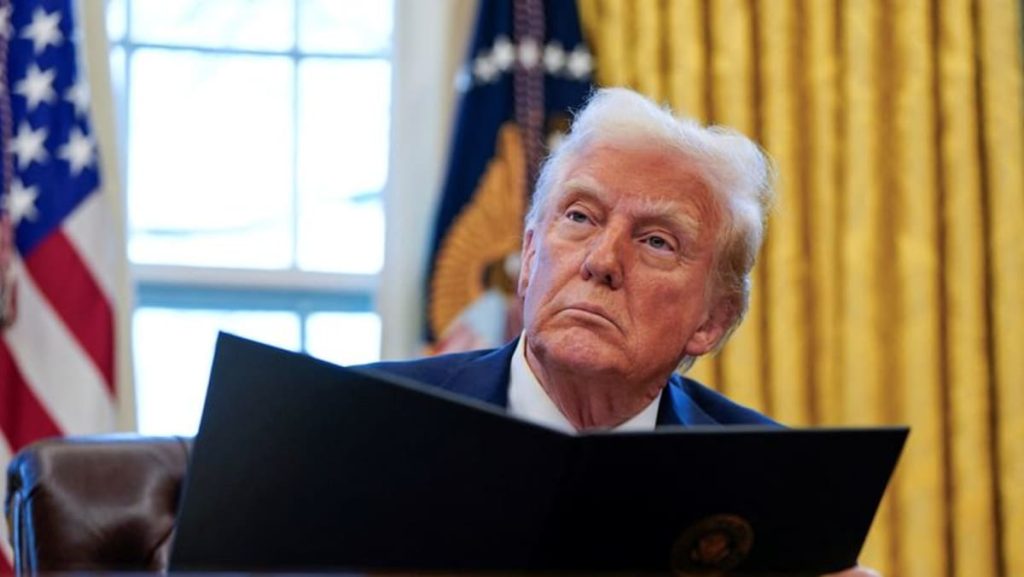The rise of protectionist sentiments under the Trump administration has created a complex web of international tensions, particularly in trade relations. Trump’s aggressive stance, characterized by threats and the imposition of tariffs, has targeted both close allies and rivals, creating ripples of uncertainty across the globe. This approach, ostensibly aimed at bolstering American industry and addressing perceived unfair trade practices, has instead sparked retaliatory measures and fostered a climate of distrust, potentially destabilizing the global economic order and undermining long-standing alliances. One prominent example is the trade war with China, which has escalated through tit-for-tat tariffs, impacting businesses and consumers on both sides. Beyond the immediate economic consequences, this trade war carries significant geopolitical implications, potentially reshaping global power dynamics and creating opportunities for other nations, such as China, to strengthen their influence in regions like Latin America.
Latin America emerges as a key region in this evolving geopolitical landscape. Trump’s threats and potential actions against countries like Panama and Mexico, driven by concerns over the Panama Canal and drug cartels respectively, could create a vacuum for China to fill. As the US retreats from multilateral engagement and adopts a more confrontational approach, China’s softer diplomatic touch and willingness to invest in infrastructure and development projects may become increasingly attractive to Latin American nations. This dynamic could further shift the balance of power in the region, potentially diminishing US influence and strengthening China’s foothold in America’s backyard. The irony is that Trump’s aggressive posture, intended to assert American dominance, may inadvertently pave the way for a rival power to gain ground.
The trade disputes initiated by the US are not limited to China. Canada and Mexico, key partners in the North American Free Trade Agreement (NAFTA), have also become targets of Trump’s trade policies. Despite the inherent power imbalance between the US and its smaller neighbors, both Canada and Mexico have responded with retaliatory tariffs, recognizing that acquiescence to American pressure would project weakness and invite further aggression. This principle of reciprocal action, though potentially painful in the short term, is viewed as a necessary strategic move to defend national interests and deter future bullying tactics. The trade war with Canada and Mexico underscores the potential for even close alliances to fray under the strain of protectionist policies and exemplifies the broader trend of nations pushing back against perceived American unilateralism.
The ripple effects of Trump’s trade policies extend beyond the immediate targets of tariffs. Countries like Britain and Japan, while not yet directly affected, remain vulnerable and cannot afford to be complacent. The underlying message from the US administration is that no nation is immune from potential trade action, creating an atmosphere of anxiety and uncertainty in the global trading system. The strategy of appeasement or maintaining a low profile is unlikely to guarantee immunity. If Trump perceives his initial trade wars as successful, he is likely to embolden and seek out new targets, expanding the scope of trade disputes and further destabilizing international commerce. This creates a precarious situation for all nations, forcing them to consider potential responses and prepare for the possibility of being drawn into a trade conflict.
The long-term consequences of Trump’s trade policies extend beyond immediate economic impacts. By pursuing a path of economic nationalism and protectionism, the US risks undermining the very foundations of the Western alliance, built on principles of free trade and multilateral cooperation. This approach, which prioritizes short-term domestic gains over long-term global stability, could ultimately weaken the US’s own economic and strategic position in the world. The destruction of the Western alliance would have far-reaching consequences, potentially creating a power vacuum and increasing the likelihood of regional conflicts. The pursuit of economic autarky, a misguided notion in an interconnected world, threatens to isolate the US and diminish its influence on the global stage.
Corporate America, often a beneficiary of globalization and free trade, also needs to recognize the potential dangers of Trump’s policies. While the initial impact of tax cuts and deregulation may have spurred economic growth, the long-term consequences of trade wars and the erosion of international cooperation could be devastating for American businesses. The disruption of global supply chains, the loss of access to foreign markets, and the escalating costs of imported goods all pose significant threats to corporate profitability and long-term sustainability. Rather than engaging in sycophantic praise of the administration’s policies, corporate leaders should actively advocate for a return to a rules-based international trading system, recognizing that their own long-term interests are intertwined with global stability and cooperation. A retreat into economic nationalism and protectionism will ultimately harm American businesses and undermine the US’s standing in the world.










